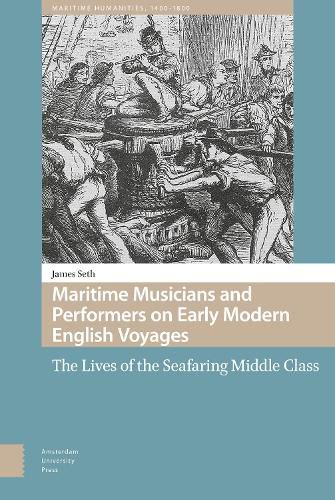Readings Newsletter
Become a Readings Member to make your shopping experience even easier.
Sign in or sign up for free!
You’re not far away from qualifying for FREE standard shipping within Australia
You’ve qualified for FREE standard shipping within Australia
The cart is loading…






Maritime Musicians and Performers on Early Modern English Voyages aims to tell the full story of early English shipboard performers, who have been historically absent from conversations about English navigation, maritime culture, and economic expansion. Often described reductively in voyaging accounts as having one function, in fact maritime performers served many communicative tasks. Their lives were not only complex, but often contradictory. Though not high-ranking officers, neither were they lower-ranking mariners or sailors. They were influenced by a range of competing cultural practices, having spent time playing on both land and sea, and their roles required them to mediate parties using music, dance, and theatre as powerful forms of nonverbal communication. Their performances transcended and breached boundaries of language, rank, race, religion, and nationality, thereby upsetting conventional practices, improving shipboard and international relations, and ensuring the success of their voyages.
$9.00 standard shipping within Australia
FREE standard shipping within Australia for orders over $100.00
Express & International shipping calculated at checkout
Maritime Musicians and Performers on Early Modern English Voyages aims to tell the full story of early English shipboard performers, who have been historically absent from conversations about English navigation, maritime culture, and economic expansion. Often described reductively in voyaging accounts as having one function, in fact maritime performers served many communicative tasks. Their lives were not only complex, but often contradictory. Though not high-ranking officers, neither were they lower-ranking mariners or sailors. They were influenced by a range of competing cultural practices, having spent time playing on both land and sea, and their roles required them to mediate parties using music, dance, and theatre as powerful forms of nonverbal communication. Their performances transcended and breached boundaries of language, rank, race, religion, and nationality, thereby upsetting conventional practices, improving shipboard and international relations, and ensuring the success of their voyages.